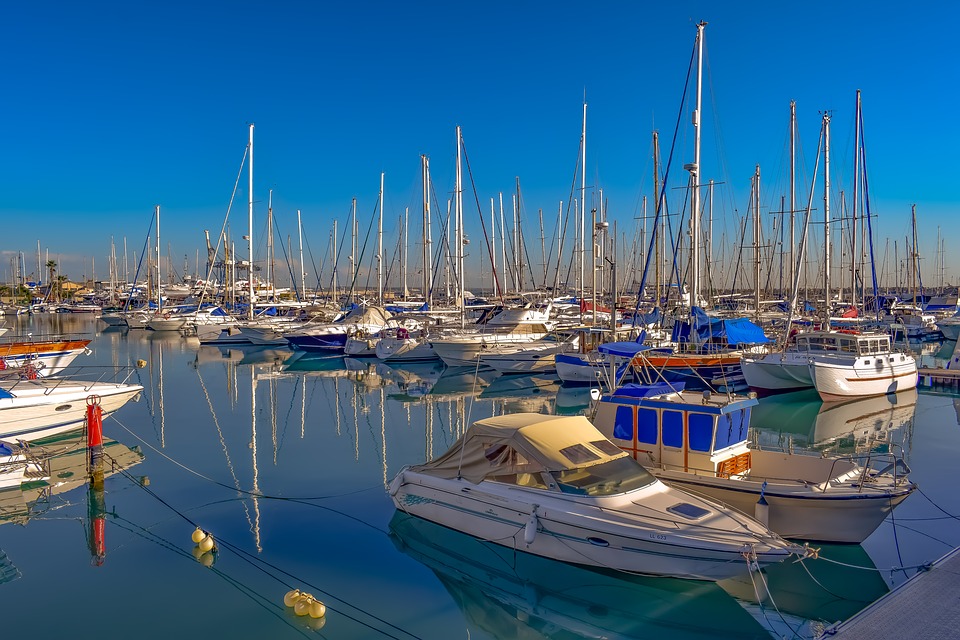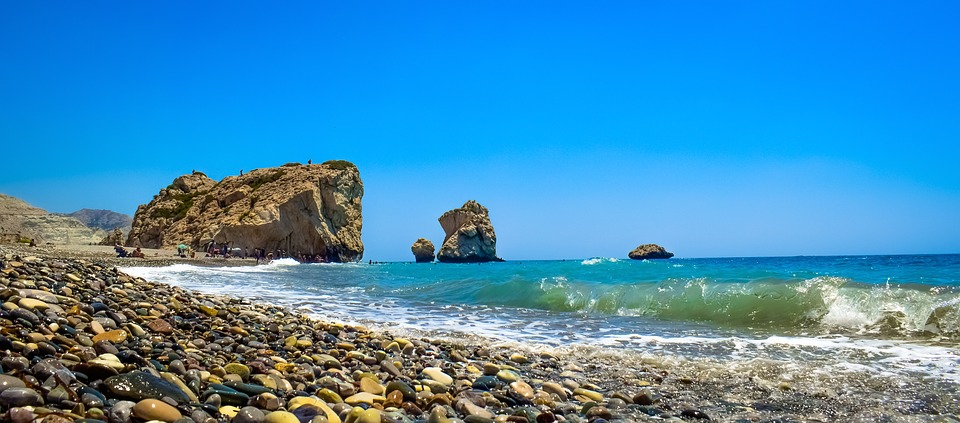With approximately 2 million tourists visiting the island of Cyprus each and every year, do you really need that much convincing? However, aside from the sun-kissed beaches, delectable cuisine, and sunsets to die for, there are some safety, cultural, and historical aspects about the country that will help make your trip run smoother. Here are 10 things we consider must-know before you visit Cyprus…

1. Patriarchal Society
Women in particular should keep in mind that the island of Cyprus and its inhabitants are not only very religious—most also worship the Muslim faith, which means men hold most of power positions and political positions in this largely patriarchal society. For example, only males can become religious functionaries (in both Muslim and Christian faiths) and run for political office. Women generally hold jobs of lesser status and are responsible for managing the household. Marriages were still arranged up until the last decade.
2. Cyprus is the Birthplace of Aphrodite
That’s right; Cyprus is the mythical birth place of Aphrodite, the Greek goddess of love and passion. Before she reached goddess status, Aphrodite was a beautiful young girl who was born and lived on the island, near Paphos, the capital city of western Cyprus. Paphos also has some historical treats in store. It’s home to the cliff side Tombs of the Kings (dating back to fourth-century BC), and it also houses many archaeological remains of various villas, palaces, theaters, fortresses, and the once famous island baths from the roman period.

3. Cyprus Currency
The currency largely in use in the Republic of Cyprus is the Euro. The majority of Cyprus adopted this as their official currency as of January 1, 2008 in lieu of the previously used Cypriot Pound. However, Northern Cyprus uses their own currency—the new Turkish lira. Most banks across the country will provide exchange for all major cash or traveler’s check currencies, including Euros, US dollars, UK pounds, Turkish Lira, and Cyprus pounds.
4. Visa Requirements
Visas are not required for tourists to enter the country of Cyprus. However, you will require a photo passport that is valid for 3 months time beyond your stay. There are a few countries exempt from the passport requirement, including Nationals from Norway, Liechtenstein, Switzerland and Iceland, who only require a national identity card for entry; United Nations issued with a Laissez-passer passport if they hold a previous entry permit from the Immigration Office of Nicosia; Nationals of Egyptians and Israel with proper travel documentation, and Cypriot nationals and Nationals of the Turkish Republic of North Cyprus and Macedonia.

5. Electrical Conversion
The travel adapter needed to plug in electrical devices in Cyprus is the UK output with the 3-pins, and 240 standard voltages. North Americans may need a European 3-prong adapter to charge cell phones, camera batteries, and etc.
6. Driving Laws in Cyprus
Driving is Cyprus follows the British UK standard of keeping to the left hand side of the road. Many North American travelers have outspokenly complained about the poor road quality and driving standards in Cyprus as many roads are dirt covered, uneven, and winding in nature.

7. Political Climate of Cyprus
Since 1974, Northern and Southern Cyprus have remained divided in the wake of the Turkish invasion of the north in reaction to a military coup supported by the Athens government. Now the northern part of the island is largely inhabited by Turkish Cypriots; while a southern portion (two thirds) is inhabited by Greek Cypriots. The divide is located at Morphou through Nicosia to Famagusta, physically separated by a United Nations (UN) Buffer Zone referred to as the “Green Line”. Today, the long standing political dispute between North and South Cyprus continues. However, the tension has eased significantly and border crossings are quite smooth.
8. Dress Etiquette
Attire in Cyprus is similar to most European conventions. However, you must remember that when entering a sacred place of worship men are expected to wear long pants and long sleeved shirts while women are expected to wear long skirts and have their arms covered. If it is hot, wear a long sundress and be sure to bring a wrap or sweater to cover your shoulders when entering tourist areas that demand modest dress.

9. Social Drinking
Getting socially inebriated or public binge drinking and carrying on in an embarrassing fashion is largely frowned upon and considered shameful in Cyprus. You must remember that certain portions of Cyprus are Muslim while other portions are largely Greek Orthodox. The island also has a strict zero tolerance regarding drug use.
10. Language Spoken
The official languages of Cyprus are both Greek and Turkish. Obviously, due to the border division of the country, Greek is largely spoken in the southern portion of the island and Turkish is largely used on the northern part of the country. As a former British colony, English is also widely spoken in the country, and you will find most official documents as well as street signs are usually in Greek or Turkish and English (depending on what side of the island you are on).
Via Escape Here
